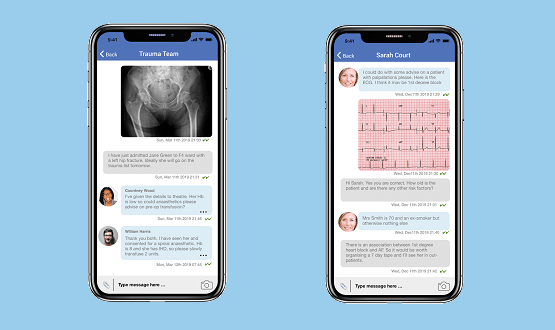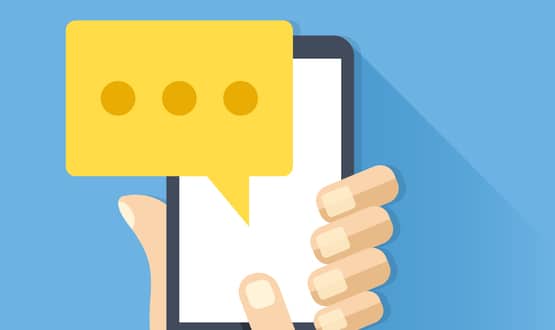Sir Bruce Keogh to advise medical messaging app Medic Bleep
- 22 July 2019

The former medical director for NHS England has joined a company behind a medical messaging app designed to replace unsafe alternatives like WhatsApp.
Sir Bruce Keogh will act as an advisor for Medic Creations, the creator of secure instant messaging app Medic Bleep.
“Useful, timely and convenient communication underpins safe and effective clinical practice and healthcare delivery,” Sir Keogh said.
He is the current chairman of Birmingham Women’s and Children’s NHS Foundation Trust and was NHSE’s medical director for over a decade.
Former EMIS and Capita executive Kevin McDonnell has also joined the company.
Medic Bleep is one of several solutions offered to improve messaging among clinicians and healthcare professionals.
The company believes its app is also a suitable alternative to pagers, due to be outlawed by 2021 as part of secretary of state for health and social care Matt Hancock’s ‘Purge the Pager’ campaign.
All hospitals are expected to have plans and infrastructure in place to ensure this is possible by the end of September 2020.
Instead, staff are expected use modern alternatives, such as mobile phones and apps, which can deliver more accurate two-way communications at a reduced cost.
The need for secure messaging solutions was particularly apparent after the 2017 WannaCry attack, which affected 81 out of the 236 trusts across England.
Doctors, nurses and clinicians were forced to turn to WhatsApp after systems were knocked offline by the attack.
There have subsequently been calls to introduce a WhatsApp-like messaging service into the NHS.
Following the incident, NHS Digital and NHS England released guidance on the use of instant messaging apps which sets out how, and in which circumstances, doctors, nurses and other healthcare staff can use apps within acute care settings.
It didn’t endorse any instant messaging tool, but set out the standards that need to be met by health staff using instant messaging during emergencies to coordinate patient care.
This includes only using apps and other messaging tools that meet the NHS encryption standard, keeping clinical records separate and deleting any notes after they have transcribed and attributed in the medical record. It also offers practical guidance such as disabling lock-screen notifications and discouraging staff from sharing devices.
But the guidance has been labelled “more confusing than helpful”, with some saying very few staff would be aware of it.




